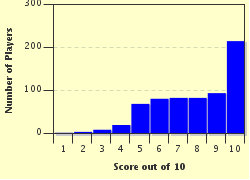Quiz Answer Key and Fun Facts
1. Phil Ochs acknowledged Woody Guthrie as being a major influence on his songwriting. What song, sharing its title with Woody's autobiography, did he write as a tribute?
2. "Too Many Martyrs" is a Phil Ochs/Bob Gibson song about the American civil rights movement of the 1960s. It was inspired by the 1963 death of which NAACP field worker, whose name is included in the alternative title for this song?
3. "I Ain't Marching Anymore" is the title song on Phil Ochs's second album. What conflict, for which American involvement was beginning to escalate in 1965, sparked this anti-war song?
4. Whose death inspired Phil Ochs to write the song "That Was the President", released on his 1965 album "I Ain't Marching Anymore"?
5. Which Phil Ochs song, targeting the social inequity of the way in which the death penalty is applied, contains the line "And a rich man never died upon the chair"?
6. On the 1966 album "Phil Ochs in Concert", there is a song about the plight of illegal immigrants working in the fields of California. What is the name of this song?
7. What Phil Ochs song, criticizing American imperialism, contains the lines "We've got too much money we're looking for toys, And guns will be guns and boys will be boys"?
8. Which of these lines does NOT come from the Phil Ochs song "Flower Lady"?
9. Apathy is again the target in Phil Ochs's song "Outside of a Small Circle of Friends". It was written in response to reports of a young woman being killed in Queens, NY while many of her neighbors heard her cry for help, but did nothing to save her life. What was the name of this 1964 stabbing victim?
10. The Phil Ochs song which gave this quiz its title is a song of protest about the Vietnam War. What aspect of the war does this lyrical song emphasize?
Source: Author
looney_tunes
This quiz was reviewed by FunTrivia editor
agony before going online.
Any errors found in FunTrivia content are routinely corrected through our feedback system.

